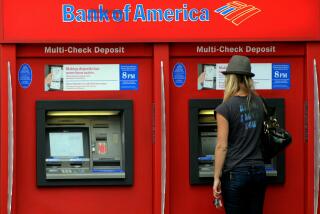SAN JUAN CAPISTRANO : Students Put Stock in Playing the Market
- Share via
Three months ago, most of Karl Gittleman’s high school economics class didn’t know a bull market from a china shop. Margin purchases? Selling short, buying high? Mutual bond markets?
Wall Street terms were like a foreign language until the class got involved in The Stock Market Game, a statewide 400-school competition that gives teen-agers a chance to build a financial empire on paper.
Armed with $100,000 in fake money, four teams of high school seniors from St. Margaret’s Episcopal School set out in February to make a killing in the stock market.
They were introduced to the Wall Street Journal, taught how to read stock reports and analyze the market, and learned that a bull market means stock prices are going up. Then the economics class cast its newfound fortune into the sometimes bewildering world of high finance along with students from Santa Rosa to San Diego.
One team finished first in the state for three consecutive weeks until falling to 13th Monday. The shark-infested waters of Wall Street have claimed two of the St. Margaret’s teams, which have finished far down in the weekly standings and have turned to time-honored methods for choosing stocks.
“OK, heads we buy, tails we sell,” said senior Matt Maxey, 17, palming a coin, then flipping it in the air.
Cal State Hayward runs the California version of the contest. The game is sponsored by Wall Street in New York and is played in various states.
Transaction sheets are filled out weekly, and Cal State Hayward issues a report that keeps track of the students’ earnings. The top winners get T-shirts, trophies and enough cash for a pizza party.
Gittleman has seen how competition has fueled students’ interest in economics during the three years the Stock Market Game has been played at St. Margaret’s.
“Most didn’t know stocks from dividends, and now they’re reading the Wall Street Journal every day,” Gittleman said.
Mitch Kelley, 17, and the rest of the class pretty much agreed: The Wall Street Game beats geometry class.
“It’s enjoyable,” said Kelley, a senior. “My dad has investments, and we go over the business page to see how my stocks are doing. There’s no pressure because it’s pretend money.”
Gittleman, a clothing retailer who volunteers to teach the class one day a week, decided to make economics class a hands-on experience when he started at St. Margaret’s.
Gittleman wants his students to do well in the Stock Market Game, although he avoids passing out stock tips. What Gittleman doesn’t want to do is create a class of Gordon Gekkos, the fictional symbol of Wall Street greed. Michael Douglas portrayed Gekko in the 1987 film “Wall Street.”
“I teach business ethics,” he said, “because business ethics is something you carry out into your life.”
More to Read
Inside the business of entertainment
The Wide Shot brings you news, analysis and insights on everything from streaming wars to production — and what it all means for the future.
You may occasionally receive promotional content from the Los Angeles Times.










